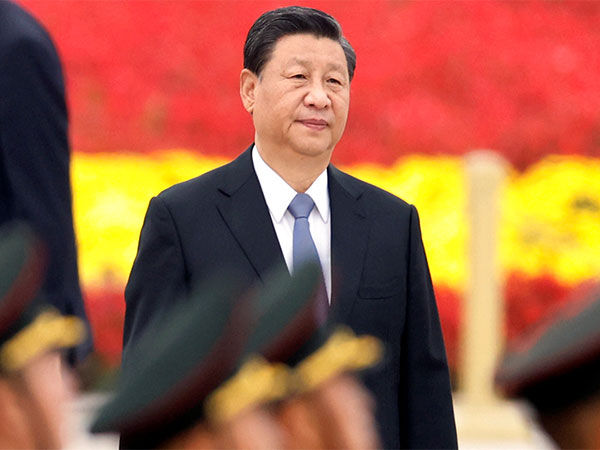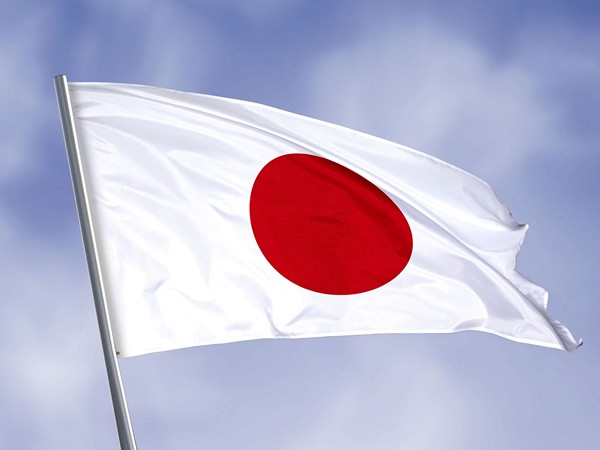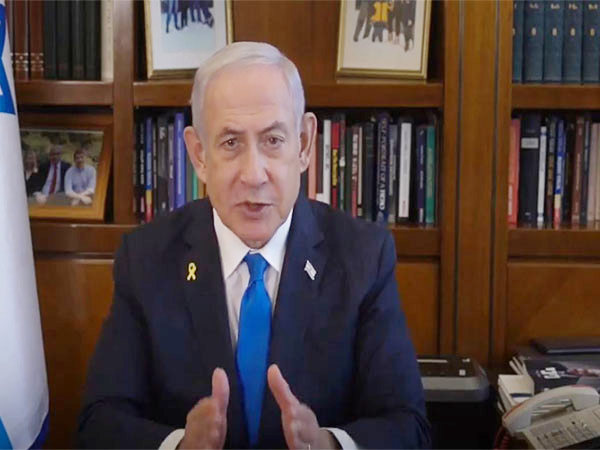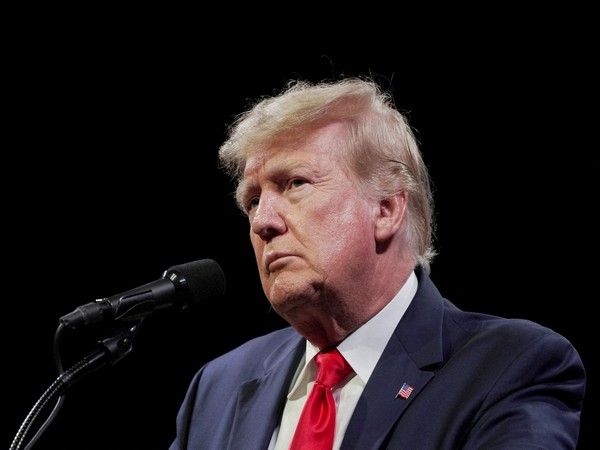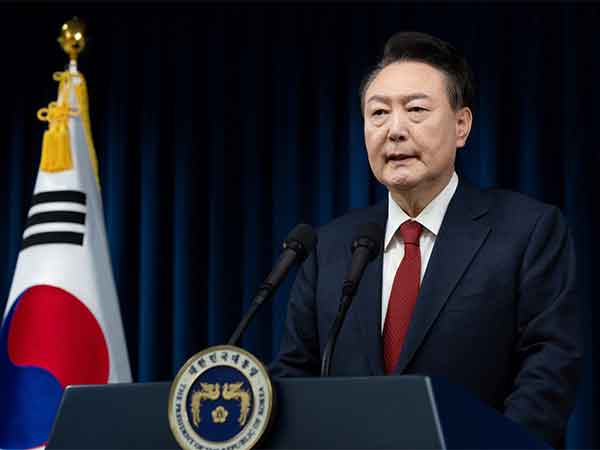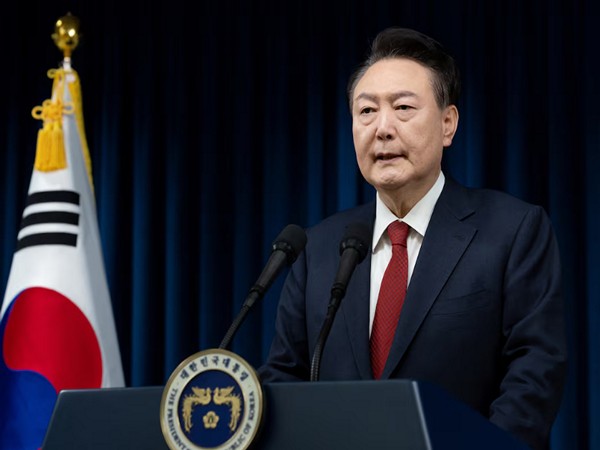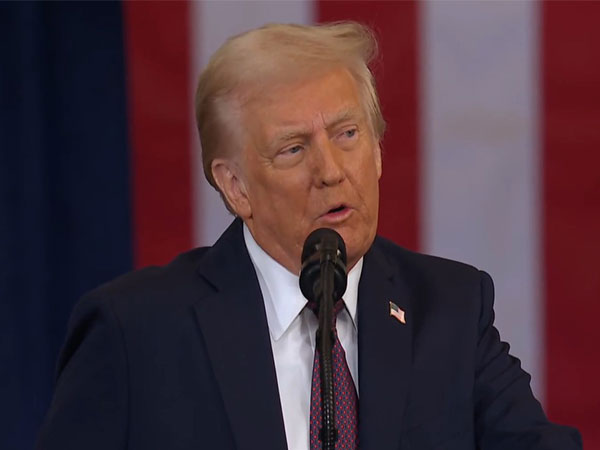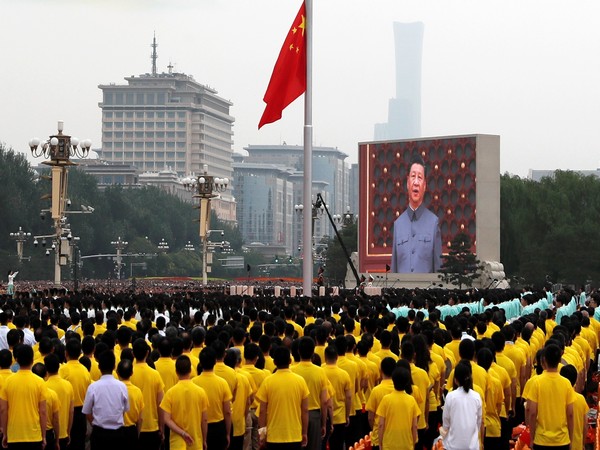
A giant screen shows Chinese President Xi Jinping singing the national anthem during a flag-raising ceremony at the event marking the 100th founding anniversary of the Communist Party of China, on Tiananmen Square in Beijing, China July 1, 2021. REUTERS/Carlos Garcia Rawlins - RC2CBO9GXFUU
Beijing [China], January 4 (ANI): The Chinese Communist Party (CCP) has usually used China‘s economic achievements to denigrate democracy, but festering problems in the CCP, threaten to put the country’s economy off-kilter and that could affect President Xi Jinping‘s goal of the indefinite rule just as he is about to start his third term in office.
Jianli Yang, founder and president of Citizen Power Initiatives for China and the author of “For Us, The Living: A Journey to Shine the Light on Truth”, writing in The Hill said that 2022 will be a big year for Xi, but he must fix China‘s economic slide.
About 10 years ago, China‘s economic growth rate began to decline. After 30 years of rapid development, a slowdown is normal, but the overlap with Xi’s governance may indicate that the decline in economic growth is related to Xi’s policies.
Especially in recent years — whether it was anti-corruption, building a personality cult, tightening the control of ideology and speech, strengthening the party’s control over the economy and society, or suppressing capital — they all may have come at the expense of economic growth, said Jianli.
This month, the political formulation of “keeping economic development as the central task,” which had almost disappeared in China‘s policies in recent years, suddenly resurfaced in its Central Economic Work Conference. The recent Central Economic Work Conference acknowledged that China‘s economy faces three pressures: demand contraction, supply shock, and weakening expectations, said Jianli.
Emphasis on China‘s economy had been an unwritten rule since Deng Xiaoping initiated reforms. However, in recent years, government officials have put less emphasis on economic development, and economic performance has not been a criterion for promotion, reported The Hill.
Xi’s anti-corruption campaign and political evaluation of officials have made some officials panic. As a result, they spend time and energy on political studies, political struggles, and dealing with tasks from above and guarding against rivals. Under such an atmosphere, many do not want to work. This inevitably has caused the bureaucratic system to slack, negatively impacting the economy. It has become evident that people cannot eat Xi’s “whole process people’s democracy.”
CCP often has claimed that “Democracy cannot be eaten.” Chinese leader Xi Jinping recently portrayed China‘s political system under his rule as a “whole process people’s democracy” — more democratic, the CCP asserted, than any other democracy in the world.
But many in China, perhaps including Xi himself, have come to realize that Xi’s whole process people’s democracy cannot be eaten, either, said Jianli. For sure, China‘s economy faces a difficult time. However, 2022 could be a special year for Xi. He may enter his third term of leadership, and strive to remain in power, following the 20th National Party Congress, which is expected to be held in October. In light of Xi’s current control over the CCP and the Chinese military, no one may be able to stop him from remaining as the party’s top leader, unless something unusual and unexpected happens in the coming year, reported The Hill.
Xi likely knows that although no one in the CCP is making noise, many are privately questioning why he wants to change the decades-old system of an orderly succession of top leaders. Considering the harsh external environment and the difficulties and challenges facing China‘s economy, Xi Jinping needs to do anything he can to stabilize China‘s economy, and quickly, said Jianli. (ANI)
Gwadar protests indication of local resentment against Chinese predatory policies: Think tank

Gwadar [Pakistan], January 3 (ANI): The recently-held Gwadar protests were an indication of resentment of local people against Chinese predatory policies in South Asia, according to a Canada-based think tank. International Forum for Rights and Security (IFFRAS) is of the view that similar agitations could break out in places like Sri Lanka, Maldives, and Myanmar.
The protest started by Pakistan’s Gwadar residents came to a halt on December 16, 2021, after the government agreed to the demands of the people protesting the illegal fishing of trawlers in Gwadar. The major demand was to ban the illegal fishing of trawlers at the Makran Coast and to protect the rights of fishermen of Gwadar and other areas of Balochistan, reported International Forum for Rights and Security.
Pakistan’s Gwadar residents staged a protest here demanding action against the trawler mafia by Pakistan and provincial governments. Led by Maulana Hidayat-ur-Rehman, Balochistan general secretary of Jamaat-i-Islami, the people of the port city launched the ‘Gwadar ko haq do’ movement in November 16, 2021, according to the Dawn.
The protests were also against the mega-development plans of the port city as part of the China-Pakistan Economic Corridor. China‘s port project started in 2016 in Gwadar and since then it has gained international attention. “When international media rightly highlighted these issues as stemming both, directly and indirectly, due to unregulated Chinese investment and interference in Pakistan’s economy, Chinese Foreign Ministry issued a statement castigating these media reports as fake news,” the think tank said.
“However, there is a view that the Gwadar protests could be an indication of local resentment against Chinese predatory policies in South Asia and that the day was not far off when similar agitations could take place in places like Sri Lanka, Maldives, and Myanmar, once people realize how Chinese investments were ruining their livelihoods,” it added.
China has one of the world’s biggest fishing industries and the domestic demand for seafood is soaring in the country and much of this demand can be fulfilled by expanding its fishing operations in distant waters. A study by Stockholm University estimates that by 2030, China is likely to need up to 18 million tonnes of additional seafood to satisfy projected domestic consumption, which it will meet in part by expanding its distant water fishing operations, reported International Forum for Rights and Security.
Earlier, the participants started their procession, carrying placards and banners inscribed with slogans in support of their demands and chanting slogans against the provincial government. Further, the crescendo of voices demanding their rights had grown louder and the mass gathering day after day in the port city had shown no sign of dispersing before the government finally agreed to protester’s demands. (ANI)






